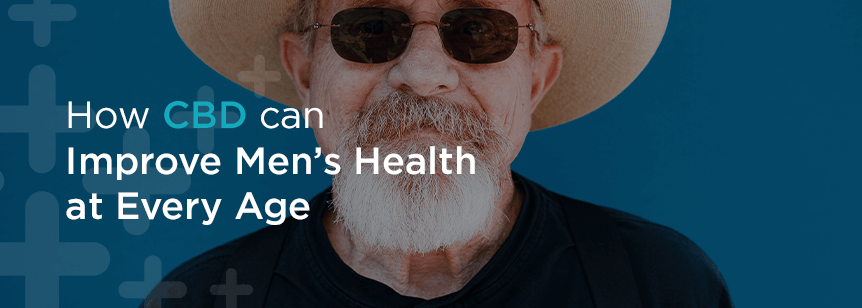
Cannabidiol (CBD), a key component of the marijuana or hemp plant, is becoming a mainstream treatment for almost everything. But what can CBD really do for you? This decade-by-decade guide to improving your health with CBD highlights the latest medical research.
See full infographic here.

Since you’ve got time on your side, use your 20s to your advantage. Develop lifelong habits now that can serve you well later and drop any bad stuff that may be left over from your teens or college years.
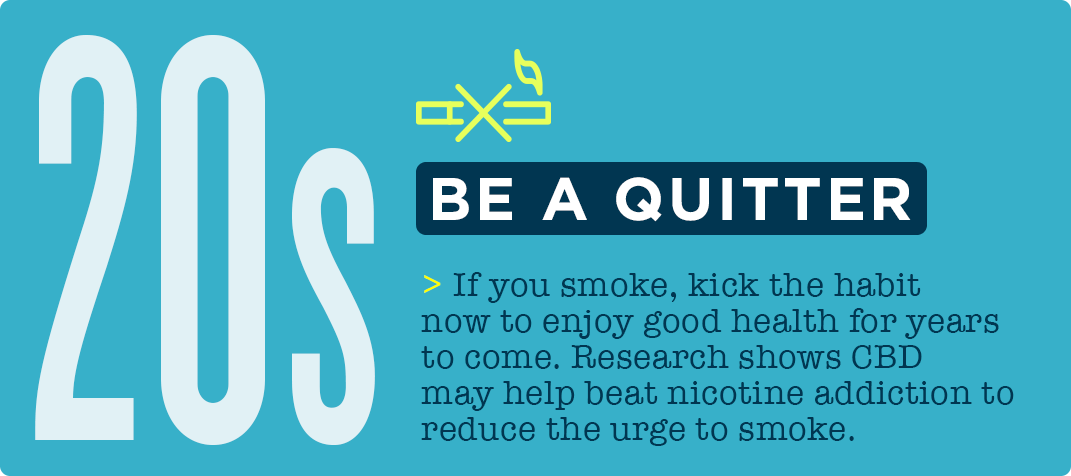
If you’re among the 34.3 million U.S. adults who smoke, CBD could help you become a quitter. In a preliminary double-blind placebo-controlled study in Addictive Behaviors, 24 smokers seeking to quit were randomly assigned to a CBD inhaler or a placebo inhaler. The subjects were instructed to use the inhaler whenever they felt the urge to smoke.
Over the course of a week, smokers using the CBD inhaler smoked 40 percent fewer cigarettes, but smokers using the placebo didn’t smoke any less. Although more research needs to be done, the results suggest that CBD to be a potential treatment for nicotine addiction.
Life’s responsibilities big and small tend to pile on. Compared to your 20s, you may be more established in your career now and working your way up the corporate ladder or trying to get a start-up off the ground. You may also be settling down and starting a family.
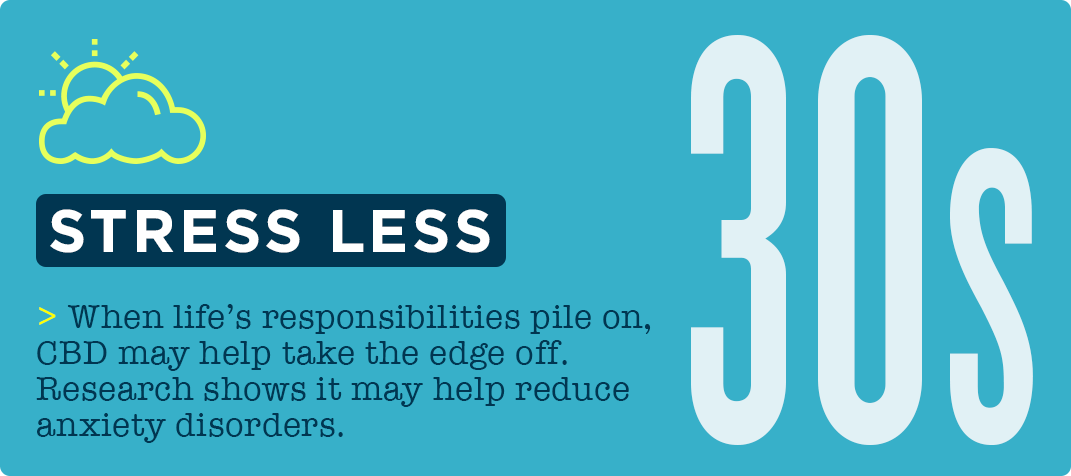
If it’s all starting to get to you—maybe you’re walking around in a constant state of anxiety (How big will my promotion be? How will we pay for daycare and the mortgage? You’re pregnant again?), CBD might help. A study in Neurotherapeutics, which reviewed 49 preliminary studies, determined that the existing evidence strongly supports the potential for CBD to treat anxiety disorders, including post-traumatic stress disorder, general anxiety disorder, panic disorder, social anxiety disorder and obsessive-compulsive disorder. More research is needed to determine how much might be beneficial and whether it’s healthy to take CBD long term.
Men’s risk of heart disease—the nation’s number one killer—climbs after age 45. The average age for a first heart attack is 65 for men, according to the American Heart Association. That’s a long way off, but heart disease takes years to develop. Do what you can now to reduce your risk of heart attack and stroke.
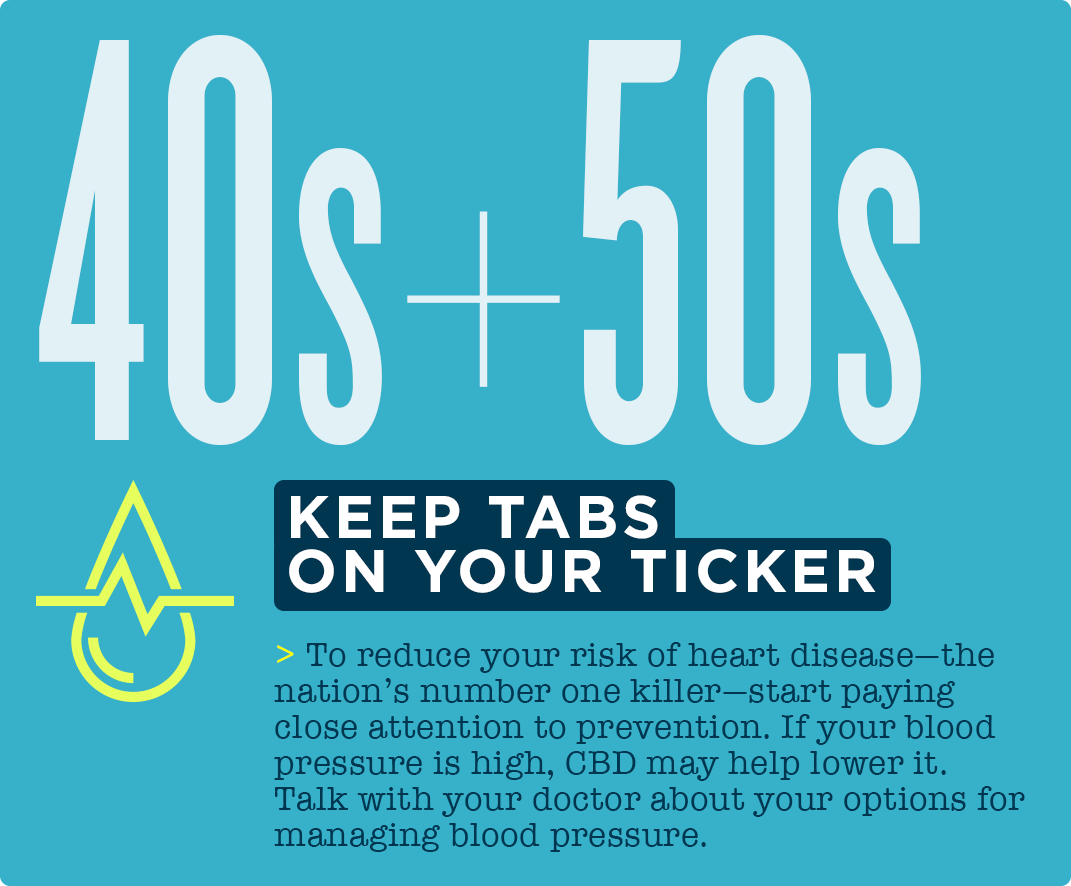
See your doctor for a checkup if you haven’t had one in a while to start tracking your blood pressure, cholesterol, fasting blood glucose, weight and BMI. Do what you can to stay in the ideal ranges to reduce your risk of heart attack and stroke.
If your blood pressure is running high, for example (130/80 or higher), work with your doctor to develop a personal treatment or prevention plan to manage your risk factors. Consider including CBD in the mix. Although more research needs to be done to establish whether CBD has any role in treating cardiac disorders, such as hypertension, a study in JCI Insight found that it holds promise. In the study, nine healthy male volunteers were randomly given 600 mg of CBD or placebo. Those who took a single dose of CBD had lower resting blood pressure and lower blood pressure in response to stress.
Meanwhile, don’t ignore sneaky symptoms. See your doctor if you have symptoms of heart disease, such as angina (tightness, pressure or discomfort in your chest when you’re exercising or stressed). Seeking prompt medical treatment can help head off a heart attack.
Whether you pushed yourself at the gym or haven’t been exercising as much as you’d like, aches and pains can creep up during this decade of life. The risk of osteoarthritis and rheumatoid arthritis increases with age. By 65, nearly 50 percent of adults have some form of arthritis, according to the U.S. Centers for Disease Control and Prevention.
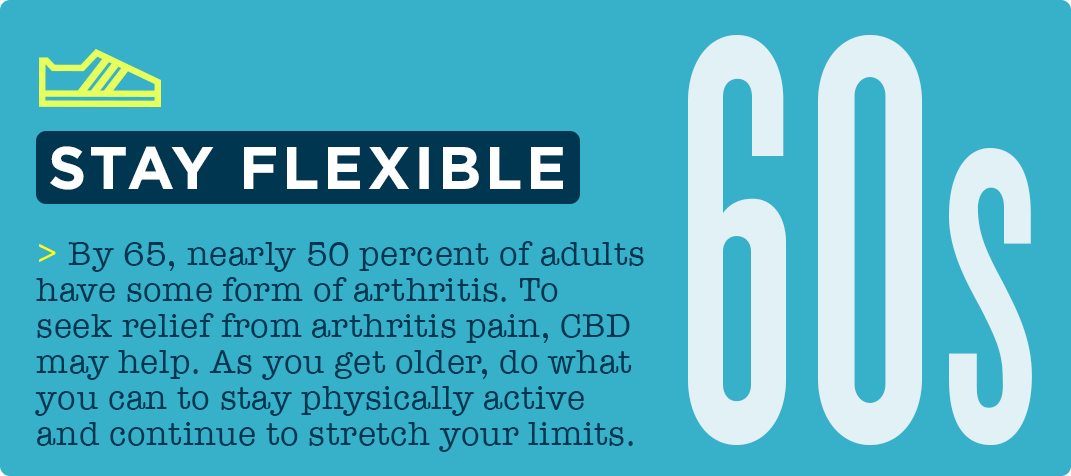
Keep up the good work of previous decades and do what you can to keep your joints flexible by staying active and maintaining a healthy weight. If joint pain persists, however, CBD may offer the relief you’re looking for. According to a study in the Journal of Experimental Medicine, CBD significantly reduced pain and chronic inflammation in mice and rats by targeting pain pathways without major psychoactive side effects.
Similarly, in an animal study in the European Journal of Pain, applying a gel form of CBD to the skin reduced joint swelling from arthritis.
Sandra Gordon is a writer specializing in health and medicine for consumers and physicians. She has written for Everyday Health, Prevention, Healthgrades, Parents, the Cleveland Clinic, NYU Langone Health, Harvard Medical School, Your Teen, WebMD and many more.
No Information on MarijuanaDoctors.Com should be used to diagnose, treat, prevent or cure any disease or condition. You can view our Full Disclaimer here.